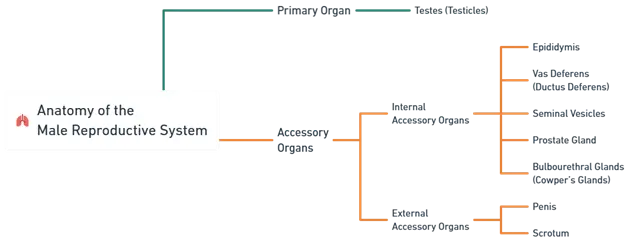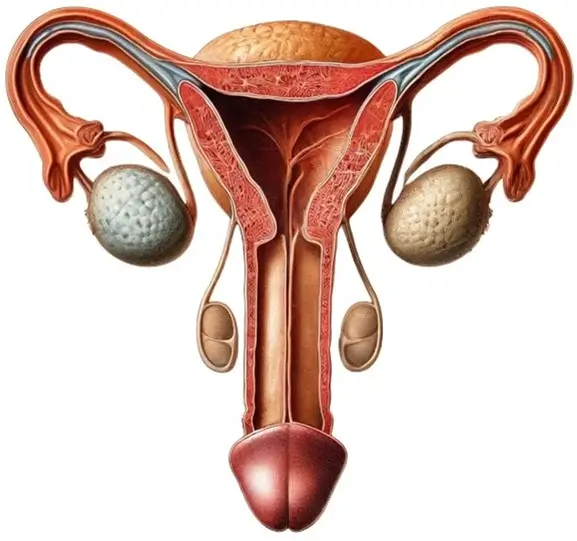- Male reproductive system is responsible for producing, storing, and transporting sperm and hormones needed for reproduction.
- It consists of both internal and external organs that work together to facilitate these functions.
- Here’s a detailed look at the Male reproductive system and its organs, classified as either primary or accessory organs:

Primary Organ:
-
Testes (Testicles):
- Located in the scrotum, the testes are the primary male reproductive organs.
- They produce sperm (spermatozoa) and secrete testosterone.
- Inside the testes, seminiferous tubules are where sperm is produced, while Leydig cells in surrounding tissue produce testosterone.
Accessory Organs:
Internal Accessory Organs:
Advertisements
-
Epididymis:
- A coiled tube behind each testicle, it stores and matures sperm after they leave the seminiferous tubules.
-
Vas Deferens (Ductus Deferens):
- A muscular tube that transports sperm from the epididymis to the ejaculatory duct during ejaculation.
-
Seminal Vesicles:
- Paired glands near the bladder that produce a thick, fructose-rich fluid, which nourishes sperm and forms semen.
-
Prostate Gland:
- A walnut-sized gland beneath the bladder that secretes an alkaline fluid. This fluid helps neutralize the acidic environment of the female reproductive tract and improves sperm motility.
-
Bulbourethral (Cowper’s) Glands:
- Small glands under the prostate that release pre-ejaculate fluid, which lubricates the urethra and neutralizes any acidic urine.
External Accessory Organs:
-
Penis:
- The male organ for sexual intercourse and urine excretion. It contains erectile tissue that fills with blood during arousal, enabling sperm delivery during intercourse.
-
Scrotum:
- A pouch of skin holding the testes outside the body to maintain a lower temperature for optimal sperm production.

